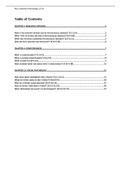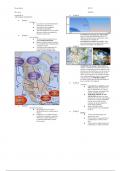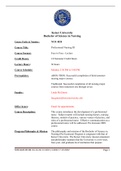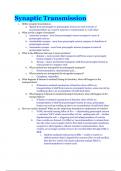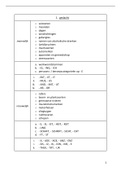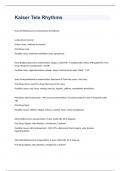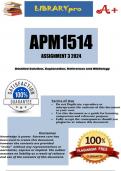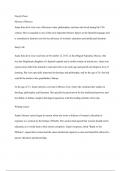Samenvatting
RUG Psychology bachelor selection summary
Summary of all the necessary chapters you need to study for the selection Psychology at the Rijksuniversiteit Groningen (RUG). Document consists of chapter 2 (research methods), chapter 4 (consciousness) and chapter 12 (social psychology). All key words are in bold, other important definitions are ...
[Meer zien]
